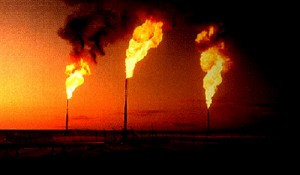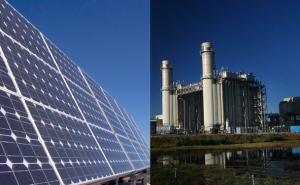86 item(s) were returned.
J.C. Ward Jr. Professor of Nuclear Energy Engineering
Cornell University
“Sustainable future” advocates seem to believe that solar, wind and hydro-electricity will eventually make up close to 100% of our energy generation, but there are benefits to having “central station” power plants in addition to distributed power generation. If the goal is to reduce greenhouse gas (GHG) emissions while assuring the health of our economy, the most viable way of generating central station power at present is nuclear fission. Central station power complements distributive power generation in two important ways. Central station power plants are better able produce power on a small area relatively close to where the energy will… [more]
View InsightAmerican Fuel and Petrochemical Manufacturers (AFPM) represents more than 400 companies that encompass virtually all U.S. refining and petrochemical manufacturing capacity. Refiners and petrochemical manufacturers make modern life possible by using advanced technology to produce the energy and essential products that we use every day. Our members keep America moving and growing as they meet the needs of the nation, its families, businesses, and local communities, strengthening economic and national security, and supporting nearly 2 million American jobs.
View InsightVice President, Research & Policy Analysis and Chief Economist
America's Natural Gas Alliance
The Obama administration recently announced forthcoming standards for methane emissions from new and modified oil and gas production sources, despite saying “voluntary efforts to reduce emissions in a comprehensive and transparent manner hold the potential to realize significant reductions in a quick, flexible, cost-effective way.” The natural gas industry has already dramatically reduced methane emissions even as production and use have soared. New regulations will take too much time and yield too few benefits, compared with a collaborative approach. Because methane is the product we sell there is great motivation to capture as much as possible. Innovations have led to… [more]
View InsightIn November, 2013, EPA announced a highly contentious proposal that lowered the 2014 Renewable Fuel Standard targets below their 2013 levels. These targets apply to the amount of renewable fuels that are blended into the nation’s gasoline supply. A year later, EPA abandoned the proposal after significant push back from the renewable fuel industry, agreeing to reconsider the 2014 targets. EPA has yet to reissue the proposal. The American Petroleum Institute (API) and the American Fuel and Petrochemical Manufacturers (AFPM) filed a lawsuit over the delay, contending that they are left guessing how much ethanol they were required to use last… [more]
View InsightExecutive Director
Environmental and Energy Study Institute
According to the EPA, its proposed Clean Power Plan (CPP) would lead to a 30 percent cut in carbon emissions from the power sector by 2030, compared to 2005 levels. The CPP sets a customized goal for each state, which takes into account its existing policies and the unique structure of its energy system. The current draft regulation gives states interim goals for 2020-29, and a final target for 2030. The EPA proposal offers a great deal of flexibility for states to choose how best to achieve these emissions reduction goals. The CPP suggests four “building blocks” that states can… [more]
View InsightThe David R. Atkinson Professor of Ecology & Environmental Biology
Cornell University
The EPA recently announced new regulations for methane emissions, taking an important first step in reducing the impact of this highly potent greenhouse gas (GHG). But the rule falls short, in part because EPA has systematically underestimated methane emissions from the oil and gas industry. Emissions from conventional natural gas are likely to be at least 2- to 3-fold greater than the EPA estimates, according to several recent studies. Recent literature also suggests emissions from shale gas may be twice as much greater still, based on an observed large increase in methane in the atmosphere over recent years, with the… [more]
View InsightOn December 3rd, 2014, OurEnergyPolicy.org hosted “Abundance or Scarcity? Re-examining U.S. Oil & Gas Policy,” a panel event at the Capitol Visitor Center in Washington, DC. The panel discussed how recent growth in domestic oil and gas production is transforming the U.S. energy sector and challenging the paradigm of energy scarcity that has underpinned federal policy for the last 40 years. Topics covered include policy issues related to exports, finance, climate change, infrastructure, natural gas as a transportation fuel and politically viable energy legislation. Find the full video below and the transcript here. Introduction: Bill Squadron, President, OurEnergyPolicy.org Opening remarks:… [more]
View InsightMember
U.S. House of Representatives
Along with my colleagues Reps. Tom Cole (R-OK) and Matt Salmon (R-AZ), I introduced the Fuel Choice for American Prosperity and Security Act (FCAPS, or H.R. 5107), a bill to promote fuel competition in our transportation sector. In particular, FCAPS aims to: Improve energy and national security by reducing the strategic importance of oil; Save consumers money at the pump by opening vehicles to fuel competition; Spur economic growth by allowing industry to capitalize on more of America’s natural resources; and Reduce the financial burden for automakers and consumers of meeting corporate average fuel economy (CAFE) regulations. Opening cars to… [more]
View InsightCo-Founder
Fuel Freedom Foundation
The lack of alternative energy sources to fuel our vehicles and replace expensive oil, jeopardizes U.S. national security, forces Americans to pay more at the pump, and greatly represses our ability to reduce pollution and address climate change concerns. In my state of California, 74% of all emissions – including CO2, toxic pollutants, ozone forming emissions and more – come from petroleum. Oil accounts for 65% of California’s GHG emissions, compared to 33% from natural gas, and less than 2% from coal. Meanwhile, each year, the U.S. spends more than $600 billion to buy oil and oil products, which is… [more]
View InsightLead Communications Consultant
Duke Energy
The role of natural gas in a clean energy future has been widely debated due to concerns over life-cycle carbon emissions and perceptions that relying on natural gas as a “bridge fuel” is short-sighted and reduces investment in clean energy. A study published in the journal Science concluded methane leaks from the production and piping of natural gas were underestimated and could be large enough to undermine the carbon reduction benefits compared to coal. Recent utility developments have highlighted the competition between renewables and natural gas: Faced with a capacity shortage as a result of the retirement of the 2,200… [more]
View Insight






